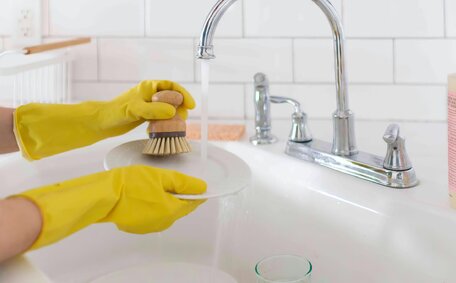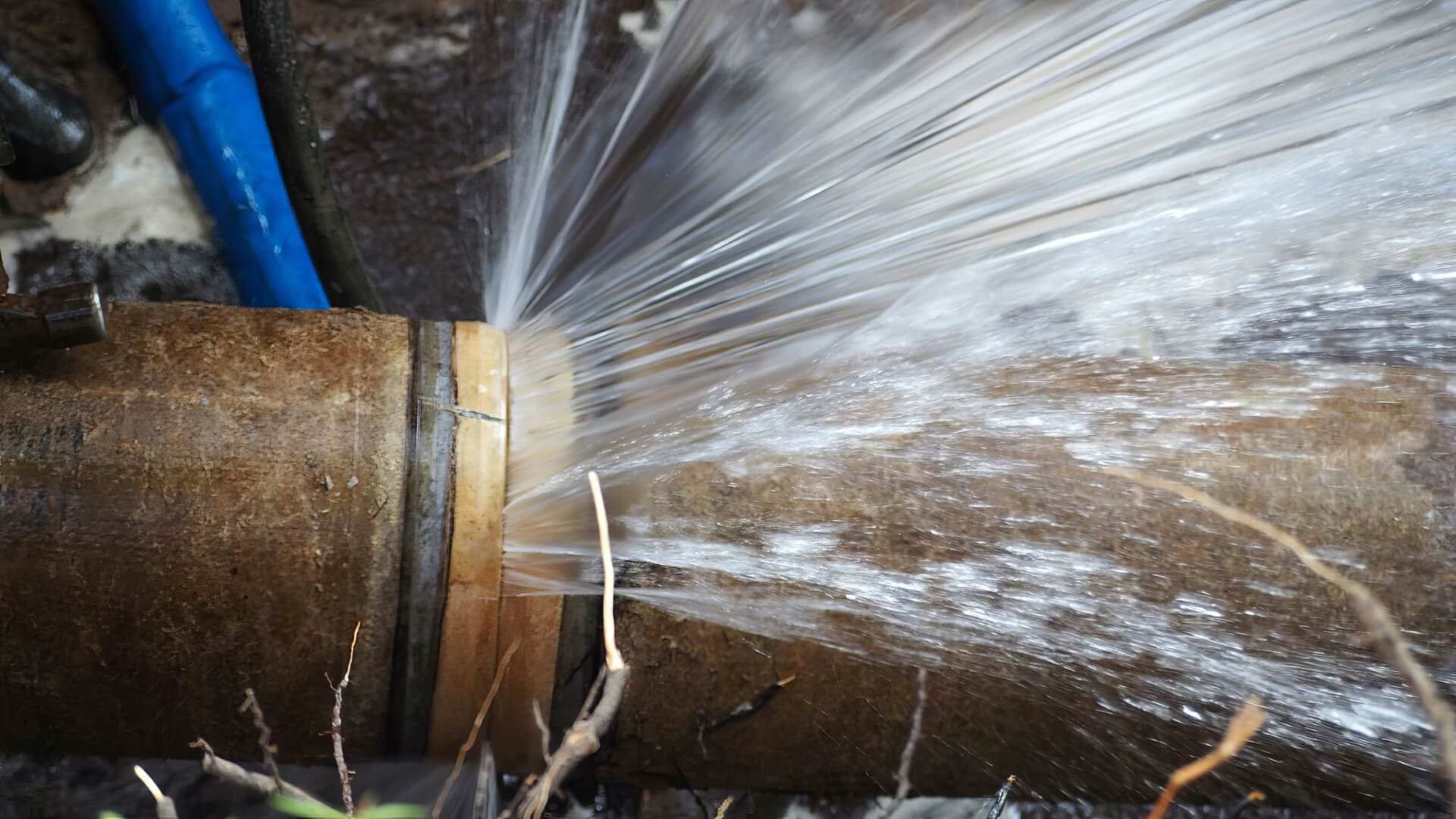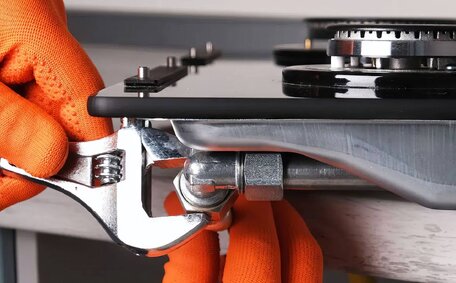Introduction to Drain Blockages: Causes and Prevention
Blocked drains frequently cause significant inconvenience and require immediate attention. They occur when solids like hair, grease, food scraps, and other debris build up, leading to a sewer choke and prevent water from flowing smoothly through pipes.
The most frequent culprits that cause your drains to clog include:
- Hair - Strands from bathing, shaving, and grooming stick to pipes.
- Grease and cooking oil - discarding cooled fats and oils down the drain, coats pipes, causing blockages.
- Soap scum residue - Buildup from bathing and washing dishes.
- Tree roots - Plant roots search for water sources and penetrate pipes.
- Toiletries - Cotton swabs and the common cause of blocked drains, flushing wet wipes, often end up being improperly disposed of down toilets.
Identifying and changing habits that lead to blockages is crucial for preventing drain issues. Simple steps like using drain covers, disposing grease properly, avoiding flushing unsuitable materials, and regular professional drain cleaning will minimise blockage risks around your home.
Tenant Responsibilities Regarding Drains
Tenants are responsible for several key aspects when it comes to drains in rental properties:
- Dispose of food waste, hair, and other matter responsibly to avoid blockages and ensure a clear drainage system.
- Refrain from pouring grease fat, oils, and other substances down drains as they cool and stick to pipes
- Only flush toilet paper and human waste down blocked toilets to avoid compounding the issue or causing sewer line complications
- Employ sink drain covers to trap hair and debris before they enter the drainage system.
- Promptly inform your landlord or property manager regarding any plumbing issues, including blockages or poor water flow.
- Tenants may be financially liable for repairs if misused practices like flushing baby wipes cause blockages, as stipulated by the Residential Tenancies Act.
Tenants must familiarise themselves with their lease agreement detailing the extent of repairs and maintenance responsibilities pertaining to plumbing. Exercising due diligence during tenancy, especially when addressing problems promptly, helps mitigate damage from leaks or overflows.
Complement these efforts by installing screens and guards to block large objects from clogging the drains. Overall, conscientious disposal habits paired with timely reporting uphold proper function and longevity of rental drainage systems.
Avoiding Misuse to Prevent Blockages
Tenants need to practice good daily usage habits to prevent drain blockages effectively. Simple, intentional actions can address the common cause blocked and make all the difference in maintaining free-flowing drains.
Frequent misuses leading to blockages include:
- Pouring fats, oils and grease down sinks - Failing to cool and properly dispose of oils and fats in the bin can cause a blocked drain
- Flushing wipes, sanitary items and other unsuitable products - Use bins instead
- Washing food scraps down - Compost or bin food waste before washing dishes
- Ignoring slow drains - Respond promptly to the first signs of a clog
Using drain strainers and minimising the amount of hair that goes down the drains are effective measures in preventing obstructive and persistent clogs. Understanding how blockages occur and exercising due diligence can prevent many issues attributable to improper tenant habits.
Should issues arise from pre-existing damage or tree roots despite proper care, tenants should immediately alert property owners, inquiring about maintenance responsibilities.
Notifying the Landlord of Any Blockages
As a tenant, it’s important to promptly notify your property owner or property manager if you encounter any plumbing issues, including a blocked drain your property is facing. This quick action, asking who responsible blocked, Whether to an agent or the landlord, helps mitigate damage to the wastewater pipes and acknowledges the landlord’s responsibility to resolve problems early.
Contact your landlord as soon as possible after discovering a problem to expedite its resolution. Acceptable modes of contact typically include:
- Phone call
- Email
- Mobile text message
When reporting a blockage, provide thorough details, including:
- The specific location of the clogged drain
- Any lead up signs like gurgling noises
- Attempted plunging or drain clearing efforts
- The severity like a completely backed up sink
Document standing water or blockages with photos to support discussions on tenant and landlord maintenance responsibilities. Tenant must notify landlord and confirm the expected next steps per their tenancy agreement like arranging professional clearing blocked drains.
By promptly involving your landlord, especially when it comes to blocked stormwater drainage issues, you uphold accountability and enable the swiftest resolution. Such an approach safeguards your home from harm and ensures reliable operation of your water system.
Landlord Responsibilities for Drainage Systems
As a landlord, you hold legal and financial duties regarding drainage systems on your investment property. This encompasses responsibilities laid out in residential tenancy acts and plumbing regulations.
Key points to consider:
- Ensure the responsible repair of drainage pipes to be in good working order without defects at the lease’s inception
- Addressing these issues promptly is your responsibility, and Landlords must carry out timely plumbing repairs if notified about blockages or leaks
- Must cover costs for repairs stemming from fair wear and tear on the plumbing, structural faults, tree roots, or pre-existing damage
- Arranging emergency Emergency plumbing repairs within 24 hours if sewage issues threaten property safety or tenant well-being.
- Inform tenants prior to accessing the property for inspections or repairs of reported drainage issues
Plumbers handle repairs for unexpected blockages, except when caused by tenant misuse, underscoring the importance of regular inspections. We recommend contacting a licenced plumber to formally diagnose issues and implement solutions.
By addressing drainage issues swiftly and maintaining well-functioning infrastructure, landlords and tenants together ensure safety and functionality for the property and its occupants.
Determining Fault for a Blockage
Determining responsibility for a drain blockage in a rental property involves investigating the root cause and examining the terms of the tenancy agreement.
Start by having a licenced plumber inspect the blockage to diagnose the failure point and what specifically clogged the drain. Common causes for blockages has been identified and include:
- Buildup of hair, grease, and debris due to tenant misuse
- Tree roots or ground shifting damaging external drainage pipes
- Old or damaged internal plumbing infrastructure
- Blockages, had they been caused by tenant actions, forming beneath the property in pipes managed by the local utility, such as Sydney Water or main sewer mains
A plumber is able to pinpoint the origin of the blockage, attributing it to either tenant actions or structural property issues, thus providing essential insights. Landlords must consult the tenancy agreement for specific clauses on drainage repair and maintenance roles when property accountability is in question.
Generally, Landlords are responsible clearing blocked drains stemming from ageing pipes, tree roots, underlying structural issues, or external blockages. Tenants can get responsible for clearing clogs caused by their actions like flushing wipes.
If fault remains ambiguous after professional input, further discuss responsibilities constructively with your landlord or property manager to establish accountability. This ensures the optimal resolution.
When the Landlord Must Take Action
Landlords are legally required to promptly address blocked drains under certain conditions:
- If blocked drains compromise property habitability, for instance by causing sewage back-up into sinks or toilets
- If urgent repairs within 24 hours are necessary for a blocked sewer to prevent further property damage or risks to tenant health/safety
- In cases where failures in the drainage infrastructure, such as collapsed pipes, are beyond the tenant’s control
- If tree roots or ground shifting external to the property is the verifiable cause
- If restoring adequate service for vital water systems like hot water, toilet flushing, or your kitchen sink’s drainage is necessary
- If pre-existing, underlying issues within the infrastructure contributed to the situation
We highly recommend contacting a licenced drainage expert to formally diagnose the blocked drain and advise on the fault. They can also identify the best way to fully restore drainage functionality.
By proactively addressing issues requiring landlord intervention, tenants can ensure care all around, maintaining living standards while upholding property integrity.
Legally Enforcing Repairs if Landlord Refuses
If a landlord refuses to address your blocked drain that is their responsibility to repair, tenants may ponder who should legally enforce action under residential tenancy laws.
The first step is to re-confirm the landlord’s obligations in writing, keeping documentation of all correspondence and repair requests. Tenants can outline the issues in breach of tenancy agreements and health/safety implications.
If a landlord continues avoiding necessary repairs, contact NSW Fair Trading to mediate the dispute and compel the landlord to fulfil their duties. As a last resort, apply to the NSW Civil and Administrative Tribunal to legally require repairs by an enforced deadline.
Tenants may also be able to arrange urgent repairs for blocked drains that can be billed to the landlord for reimbursement. Or withhold a portion of rent in specific circumstances to fund repairs, while seeking legal advice.
By understanding these enforcement pathways available through tenancy acts and consumer affairs protections, tenants can take care to ensure landlords address serious blockages if initial requests are ignored.
Seeking Professional Drainage Services
When facing a blocked drain or other plumbing emergency, the best solution is seeking a professional, licenced plumber like Chatswood Plumbing. As very professional accredited experts, our prompt 24/7 service accurately diagnoses issues and delivers comprehensive solutions.
With extensive, up-to-date training paired with cutting-edge equipment, our team reliably clears all drain blockages and repairs damaged pipes. We determine accountability and fault assessment according to NSW tenancy legislation and Fair Trading standards to settle liability concerns.
To request emergency or standard plumbing services, call Chatswood Plumbing at 1300 349 338. Or conveniently email job requests to [email protected]. Our team of friendly staff facilitate scheduling and provide accurate quotes.
Utilising our years of plumbing experience, which extends to hot water system maintenance, Chatswood Plumbing offers time, cost, and stress savings for both tenants and landlords. Contact us 24/7 for professional solutions ensuring safe, clog-free drains and fully functional water systems at your property.
Tenant Rights Under the Landlord and Tenant Act
Tenants ought to know their defined rights regarding drainage repairs under the landlord tenant act. If a drain blockage damages property, affects habitability, or risks health, is your landlord responsible to act urgently within 24 hours. Tenants have the legal right to demand repairs if issues violate legislation, ensuring they can assert their rights effectively.
Key points to consider:
- Landlords are accountable for maintaining the drainage system in optimal condition
- Landlords are responsible for repairs unless faults are clearly due to tenant misuse
- Arranging emergency repairs within 24 hours if sewage overflow risks real estate or health
- Tenants legally enforcing action through NSW Fair Trading if landlords ignore repair duties
By understanding their entitlements, tenants can ensure the landlord can swiftly resolve blockages. We recommend contacting NSW Fair Trading for advice navigating tenancy rights and obligations.
Best Practices: Communication is Key
Clear communication between tenants and landlords is vital for promptly resolving any drainage issues. Provide specific details like the location and severity of clogs. Follow up any verbal reports in writing to establish a paper trail.
We recommend tenants promptly notify landlord about blockages or plumbing problems through phone calls, emails, or text messages.
Likewise, landlord should proactively inform tenants about scheduled maintenance or related access requirements to prevent drainage issues. Both parties should discuss blockage causes constructively when comes blocked to reach accountability agreements. With timely, documented communication, tenants and landlords can quickly resolve blocked drain issues and maintain accountability.
If disagreements about liability persist, seek guidance from tenancy authorities to navigate your rights and responsibilities. But in most cases, cultivating mutual transparency and good-faith discussions prevents disputes while expediting solutions.






